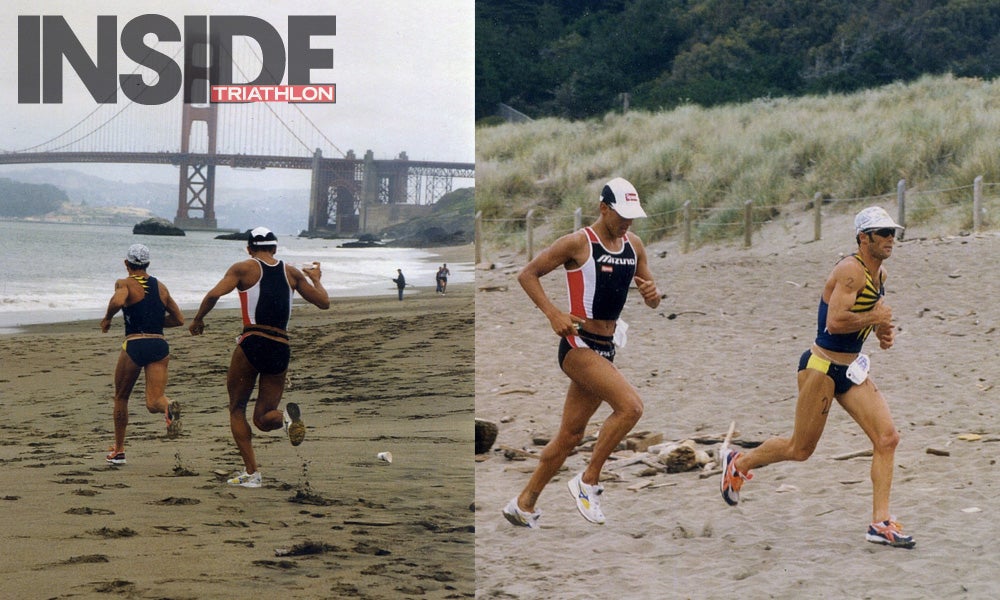Recalled: Chris McCormack's First Alcatraz Win

Greg Welch and Chris McCormack. Photo courtesy of Eric Gilsenan.
Chris McCormack’s first Escape from Alcatraz victory rang in a new era of Aussie dominance in triathlon.
This article was originally published in the March/April 2013 issue of Inside Triathlon magazine.
In 1998, Chris “Macca” McCormack was the reigning ITU world champion, but he was practically an unknown on the U.S. triathlon scene. “I was the world champion, but 90 percent of my racing was done in Europe and on the Olympic circuit,” he says. Alcatraz was just his fourth race on American soil and wound up being his first U.S. victory. But to get the win, he had to beat the guy who got him into the sport.
When Macca was a junior athlete in Australia, he read about the legendary San Francisco event in magazines. “You could count on a single hand the sport’s biggest races, and Alcatraz was one of them,” he says. The race drew the biggest names in the sport, including 1994 Ironman world champion and defending Alcatraz winner Greg Welch (“our hometown hero,” as Macca calls him—they hailed from the same town).
Macca exited the swim behind the leaders and made up time by running the half-mile from the water to transition barefoot (he had only packed one pair of shoes). By the end of the bike, he was with only Welch and Wes Hobson, whom the Aussies quickly dropped on the run. The first mile was sub-five minutes before Welch realized he wasn’t going to shake Macca so easily. Despite running at a record-setting pace, the two chatted during the run along Baker Beach. “It was to some degree like two mates having a solid tempo run,” Macca says.
But once they got back to the flat section under the Golden Gate Bridge, “All bets were off, and it would be a run for home and the title,” Macca says. They were neck-and-neck till the finish chute, when Macca started to accelerate and break away. “If you watch footage of the race, I run all the way through the line,” Macca says. “That was the respect I had for the man I was racing!” He took the win in 1:59:56 (a new course record), and Welch finished six seconds later.
Welch’s reaction to being beaten by his protégé? “I should have bolted way earlier as I never had a good sprint in me!”
Macca went on to win four times at Alcatraz, but the first was the most significant to his career. “In a small way [it was] a changing of the guard within Australian racing,” he says. (Welch retired following the 1999 season.)
“Looking back now, without realizing, it was a very important win,” Macca says. “It was really the spotlight that I needed to take my racing success out of Europe and shine it to a U.S. audience, and for them to lift an eyebrow and go, ‘OK, this guy is bloody good.’”
Photos: 2013 Escape From Alcatraz Triathlon
“Like” us on Facebook to get the first look at our photo shoots, take part in lively debates and connect with your fellow triathletes.